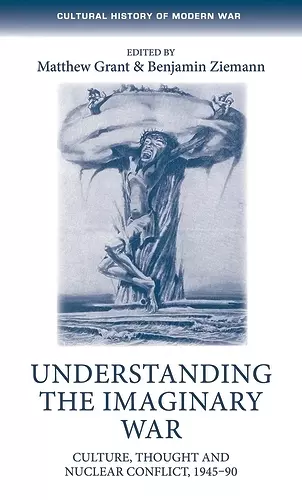Understanding the Imaginary War
Culture, Thought and Nuclear Conflict, 1945–90
Matthew Grant editor Benjamin Ziemann editor
Format:Paperback
Publisher:Manchester University Press
Published:31st Jul '18
Currently unavailable, and unfortunately no date known when it will be back

Understanding the imaginary war offers a fresh interpretation of the Cold War as an imaginary war, a conflict that had imaginations of nuclear devastation as one of its main battlegrounds. The book includes survey chapters and case studies on Western Europe, the USSR, Japan and the USA. Looking at various strands of intellectual debate and at different media, from documentary film to fiction, the chapters demonstrate the difficulties to make the unthinkable and unimaginable - nuclear apocalypse - imaginable. The book will be required reading for everyone who wants to understand the cultural dynamics of the Cold War through the angle of its core ingredient, nuclear weapons.
‘Understanding the Imaginary War is useful both as a historical tool, but also as a reminder that nuclear weapons still exist, and that nuclear war is still a very real possibility. If anything, the current political situation between Russia and the United States, and especially the inclusion of Article 27 in Russia’s 2014 Military Doctrine relating to the possibility of using nuclear weapons to respond to a conventional attack, shows that emotions felt during the Cold War still affect contemporary relations.’
April Curtis
‘The book’s fresh approach to the topic and wide range of perspectives will be welcomed by all with an interest in history, political science and cultural studies, and in particular by those of us interested in the Cold War and the history of nuclear weapons.’
Dr Mattias Eken, University of St Andrews, Reviews in History
‘The volume succeeds in providing a deeper understanding of the cultural responses to nuclear weapons and is an important entry in Cold War historiography, bridging the gap between political, cultural, psychological, and emotional interpretations of nuclear weapons.’
Emily Gibbs, University of Liverpool, Journal of Contemporary History
ISBN: 9781526131904
Dimensions: 216mm x 138mm x 17mm
Weight: 367g
320 pages